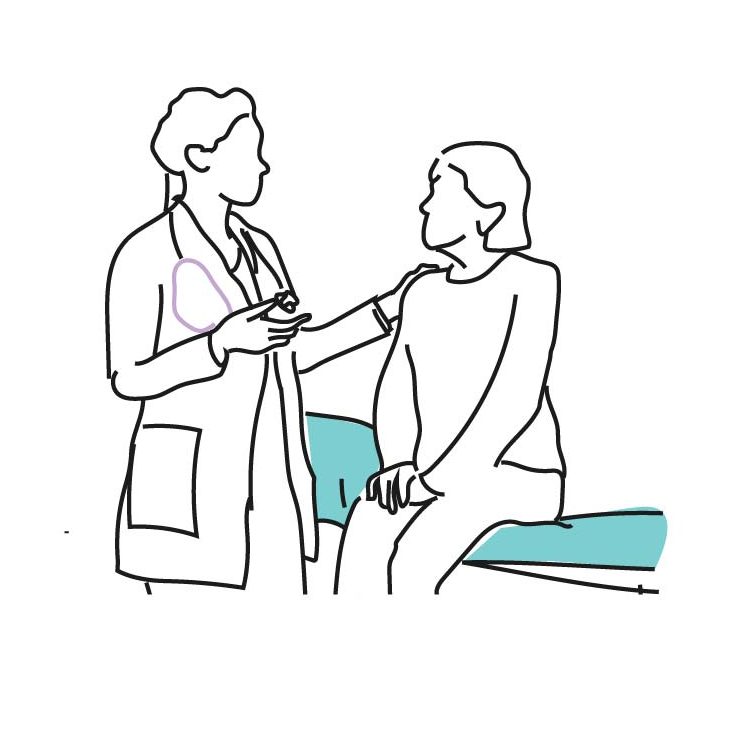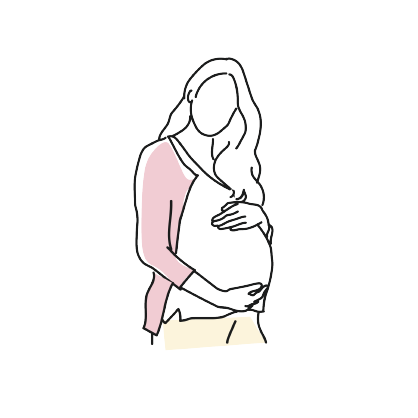Frequently Asked Questions
Frequently Asked Questions
General FAQs
Gynecology FAQs
What can I do to prevent getting STDs?
- Know and limit partners – your partner’s history is just as important as your own.
- Talk with your partner – shame and fear can hinder open and honest communication.
- Know the symptoms and seek medical care if you develop a problem.
- Use a latex condom and avoid use of oils or petroleum jelly.
- Spermicides may help guard against some STDs.
- Avoid risky sex practices.
What are the risk factors for breast cancer?
Several risk factors have been identified with the development of breast cancer. The incidence of breast cancer obviously increases with advanced age in women. In addition, hormone replacement, especially when it combines of estrogen and progesterone may increase the risk of cancer.
Other risk factors include:
- Family history of breast cancer
- An early age of menarche (when the period starts).
- Late age of menopause
- Later age of first live birth
- Any history of benign breast disease which has been biopsied increases risk of breast cancer
- more on Breast Cancer Awareness
What is amenorrhea?
Amenorrhea is when a woman does not have her periods. There are two kinds of amenorrhea. The first kind is when you haven’t had your period at all by the time you are 16 years old. The second kind is when you are used to having periods and you stop having them for three months in a row. If you’ve never had periods you may have late puberty. This may happen if you are very thin or very athletic. Some other causes may be that you have a hormone problem or there may be problem with your uterus, vagina or ovaries. It’s a good idea to get a check-up. Your healthcare provider can make sure you do not have any of these problems.
What can be done to prevent missing a period?
To keep your periods normal, it is important to stay healthy. Eat and exercise to keep a healthy weight. Don’t use alcohol or street drugs. Medicines like sleeping pills can also make your periods stop. Don’t smoke. Get the help you need to lower stress and problems in your life. Talk to friends, family, or a counselor for support. Try to balance your work, play and rest.
How does exercise help me stay healthy?
Exercise helps both your body and your mind. It helps lower your risk or disease. It helps you feel better. When you exercise every day, you can lower your chances of having: a stroke, heart disease and diabetes. Exercise can lower your blood pressure, blood cholesterol and blood sugar. Exercise helps your mood. It changes how you feel and gives you more energy and helps you to sleep better.
Obstetrics FAQs
What is prenatal care?
Prenatal care is the care you receive when you are pregnant. It includes care given by your healthcare provider, support from your family and an extra focus on giving yourself the care you need during this special time. Good prenatal care gives you the best chance for a healthy pregnancy and healthy baby.
What meds can I take in pregnancy?
It is best to not take any medications but acetaminophen (Tylenol) in the first 14 weeks of pregnancy. If you need symptom relief here are some medications that are safe to take when pregnant. For a stuffy, runny nose: Chlorpheniramine, Diphenhydramine (Benadryl). The side effects of those two medications include drowsiness and dry mouth. Pseudoephedrine HCL (Sudafed) which keeps you awake at night. Also, saline spray may help and is totally safe. For cough: cough medicine with the expectorant guaifensin. Other ingredients are not safe to use. If you cannot sleep due to your cough, consider calling for a prescription medicine with a narcotic cough suppressant. Cough drops with natural ingredients like menthol are safe. Also try half and half honey and lemon juice. For fever, headache, or muscle aches take acetaminophen (Tylenol). Do not take aspirin or ibuprofen. Do not let your fever go above 101 degrees. For sore throat: non-medicated throat lozenges are fine. Try acetaminophen for the pain and try gargling with salt water. For nausea: Vitamin B-6, Emetrol, Ginger, Seaband acupressure bands, Acupuncture, and take prenatal vitamins with dinner, not in the morning. It is important to avoid severe dehydration. For heartburn: Tums are safe to try. For diarrhea: Avoid dehydration by drinking plenty of fluids, eat easily digestible foods like white bread, bananas, applesauce and white rice. Also, Kaopectate is safe to use. Do not use Pepto-Bismol when pregnant.
What is all the hype about folic acid in pregnancy?
Folic acid can help reduce the risk of neural tube defects; including spina bifida, a birth defect in which the bones of the spine do not form properly around the spinal cord, and anencephaly, a disorder involving the incomplete development of major parts or all of the brain. Because of this, all women of childbearing age should take 0.4mg of folic acid daily. If you cannot consume enough folic acid through your diet, you should take supplements. Foods high in folic acid are: dark leafy greens/vegetables, whole grain bread/cereals, citrus fruits/juices, dried pea/beans and folic acid-fortified breakfast cereals.
What is gestational age?
Gestational age is the age of an unborn baby, or fetus. It is measured in weeks and days and is based on the date of your last menstrual period. Your healthcare provider will talk about your pregnancy in terms of weeks, not months. There are three stages of each pregnancy, called trimesters. The first trimester is from the 1st week through the 13th week. The second trimester is from the 14th through the 27th week, and the third trimester is from the 28th week to delivery.
Is it okay to exercise during pregnancy?
It is not only okay to exercise during pregnancy, but it is encouraged. The American College of Obstetrics and Gynecology recommends healthy pregnant women get 30 minutes of moderately vigorous activity most days of the week.
Exercise tips:
- Increase your daily activities (walk more, use stairs)
- The best exercise is the one you enjoy (sports, walking, running, swimming, aerobics, yoga, Pilates)
- Use the talk test to gauge intensity. If you can talk during activity, it is not too intense
- As your body changes, you may have to change activities
- Have fun



